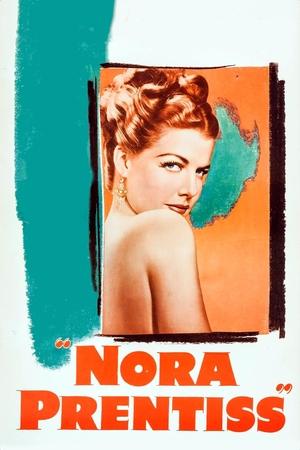
Nora Prentiss
The Man Who Died Twice. Nora Prentiss is directed by Vincent Sherman and collectively written by N. Richard Nash, Paul Webster and Jack Sobell. It stars Kent Smith, Ann Sheridan, Bruce Bennett, Robert Alda and Rosemary DeCamp. Music is by Franz Waxman and cinematography by James Wong Howe. Dr. Richard Talbot (Smith) is fed up of his dull family life. So when pretty nightclub singer Nora Prentiss (Sheridan) calls on him for treatment to a minor injury – his head – and his life – is turned drastically. What did he do? What was he hiding? One of film noir’s devilish delights is that of a filmic entry that finds a protagonist in a fantastical situation. Think of Dark Passage where Bogart has plastic surgery to alter his looks, or The Big Clock which sees Milland investigating himself for a crime! The suitcase/cannister plot devices of Kiss Me Deadly and City of Fear, the identity swap madness of Hollow Triumph, and on it goes, the more bonkers the plot scenario is in noir, the more fun the enjoyment can be. And so enter Nora Prentiss, often tagged a woman’s melodrama, it’s most assuredly a crafty piece of noirville that hinges on a quite superb and fantastical twist of fate come the final stretch. `Sure there’s melodrama and some romantic delirium, but this is not cosy stuff, the pay offs beat a true pin cushioned heart. The title may be Nora Prentiss, but she’s not the key character, Doctor Talbot is, so really it’s a name grab title to aid Sheridan in her efforts to break out of a lull (47 also saw her make The Unfaithful - also under the watchful gaze of Sherman). The story trajectory actually isn’t what you would perceive as true film noir on plot terms, in that Nora isn’t a femme fatale. In fact we are on her side, she’s not malicious or shredding Talbot’s life by choice, she is actually the one being messed around by the doofus doctor. Talbot is inconsiderate of his actions to how they affect those he so readily leaves behind (wife and two kids), and he lacks a spine to at least do the right thing as he plots a new life with the sultry Nora. And thus he makes a decision – when an opportunity arises in his medical office – that’s brilliant in how it shifts the course of the picture into far darker territories. Tech credits are high end, there’s absolutely nothing wrong in the wily Sherman’s direction, where although I can’t personally say all his noir ventures are successful, he handles the tonal shifts smartly here whilst getting top perfs from his leads. Sheridan and Smith are done proud by the writers, they get interesting characters to play who are caught in a web of passion, unfulfillments, paranoia and a stonker of a lie. While as ace composer Waxman drifts tonal harmonies over proceedings, Sheridan even gets to warble a couple of very pleasing tunes. Yet all play second fiddle – not for the first time for many others – to Wong Howe’s photography. A master of low-key compositions, he blends the expressionist feels with claustrophobic visual tightness. Witness the scenes in the hotel room that Nora and Richard share, a sequence post an operation that’s filmed in clinical shadowed low lights, and the metaphorically potent scene of Nora and Richard talking through a prison grille. A hit at the box office, the realignment of Sheridan’s career in place, Nora Prentiss has many reasons for being sought out for viewing pleasures. More so if you like to tread the dark and sometimes nutty sidewalks of noirville. 8/10
